“Our boys 6 points, Phil Bennett 27”. So announced the headmaster of Stradey Secondary Modern in morning assembly, with very few of the gathering even remotely surprised.
Word had already spread that Coleshill school had a generational talent in their ranks. Les Williams, later to become Llanelli’s rugby historian and stats man extraordinaire, was among those listening to the result update all those years ago. The schoolboy Bennett, he would recall, seemed capable of winning games on his own. The jagged, savage sidestep that could befuddle even the most capable defenders was there even at that early age, along with the sword-sharp rugby intelligence.
It makes you wonder: How long would be the queue of English clubs if the little genius from Felinfoel were setting out on his rugby journey today?
Maybe there’d be the prospect of a place at a renowned school in England on the table as well.
Certainly, more and more Welsh teenagers with a talent for playing rugby are finding themselves attracting interest from over the border.
“Young players are being courted left, right and centre,” says Cardiff academy manager Gruff Rees.
“Across the Welsh game, it’s becoming more problematic. Because of geography and demographics, I have been facing these sorts of challenges since I started in my role six years ago. Before then, the focus tended to be largely on people like Callum Sheedy, Louis Rees-Zammit and Ioan Lloyd, all Cardiff boys, looking at opportunities over the border, but now we are seeing the likes of Ospreys and Scarlets being more affected, too.
“So there are challenges, but I think it’s about all of us understanding the world as it is and the chances being offered to these youngsters and making sure we get our own houses in order.”
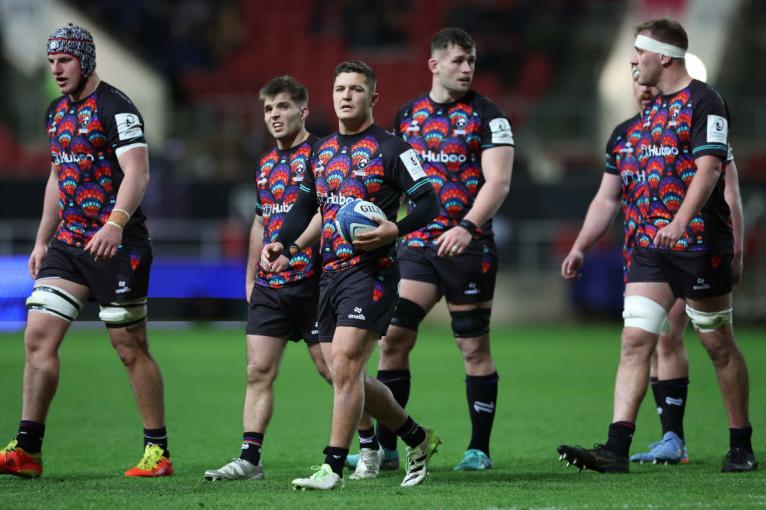
All this matters. It really does.
The late Clive Rowlands used to argue that well-known Welsh players leaving for England wasn’t a major problem because it would free up opportunities for emerging products in the game on the western side of the River Severn.
But, increasingly, as Rees notes, significant numbers of the next generation are ending up in English clutches, also.
The talented Josh Hathaway signed for Gloucester from the Scarlets in 2022 while studying at Hartpury College. He has since played for England U20s and impressed for the Cherry and Whites, whose coach George Skivington went on record this week to say the Aberystwyth-born wing has what it takes to become a high-class player or, to quote him verbatim, to become a ‘rock star’. There’s now speculation Wales and England could become involved in a tussle for Hathaway’s services. If such a scenario does unfold, the hope from a Welsh perspective is that Wales will prove a bit more persuasive than they were when handling the case of Immanuel Feyi-Waboso, who committed to England this season despite being Cardiff- born and bred.
There have been reports that some English clubs are putting clauses in contracts stipulating that players must commit to England at age-grade level if selected
Other Welsh colts operating in the English system include Kane James, a highly regarded back-row forward who hails from Haverfordwest. He has signed for Exeter Chiefs via Newcastle Falcons after a spell at Sedbergh. An indication of his potential came earlier this year when he featured for England U20s at the age of just 18.
Making matters potentially more troubling, there have been reports that some English clubs are putting clauses in contracts stipulating that players must commit to England at age-grade level if selected. Even though such a move would not tie the players in question to the white jersey at senior level, they could potentially strike up friendships and attachments within a national setting that might dissuade them from changing track further down the line.
Rees, however, can’t confirm with certainty that such a practice is happening, saying: “I haven’t seen definitive, hard evidence of it. That’s not to say it’s not encouraged in the way clubs over the border see the situation and I guess it supports their model if young players are committed to English age-group sides and the funding they receive.
“But I couldn’t comment definitively on stuff I don’t know about.”
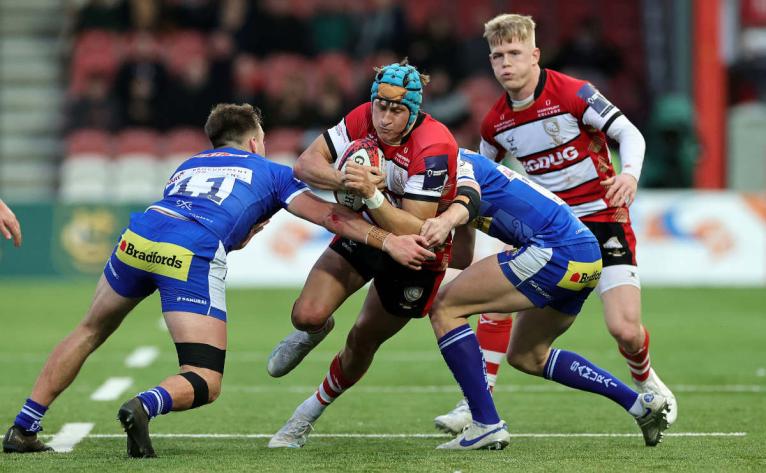
The evidence is hard, though, that Welsh youngsters are increasingly surfacing in the Gallagher Premiership, whether through scholarships or not. Exeter Chiefs had former Wales captain Paul John’s son and ex-Wales coach Dennis John’s grandson Dan John playing at full-back for them against Gloucester last weekend, with the ex-Millfield student arriving at Sandy Park via Exeter University. It’s early days for him at senior level, but he looked quick, alert and skilful, a player who could potentially go places, with a try crowning his efforts against the Cherry and Whites.
Joe Hawkins – remember him? – also had one of his best games in an Exeter jersey, with Dafydd Jenkins to the fore up front and Christ Tshiunza appearing off the bench. Feyi-Waboso, the Wales wing that never was, looked a class apart wherever else he chose to pop up.
Just to be clear: It’s hard to blame any youngster for wanting to try something different and sample life and experiences beyond his home environment, especially if there are educational benefits to be reaped.
So what’s the answer?
We have to keep putting out the message that while there are some good educational establishments in England, we have some excellent independent settings in Wales.
Gruff Rees, Cardiff Academy manager
“It’s not an easy one,” says Rees.
“In the case of Josh Hathaway, it seems Hartpury just appealed to him. Maybe he was attracted by the prospect of being away, the independence – a lot of youngsters crave that – and there’s a good rugby programme there, with fine coaching and relatively good strength and conditioning. I’d argue there’s comparable stuff on our doorstep and every region has great establishments that we work with, but there’s a perception that people want to have a look at different things. It’s understandable from an education and parent point of view. I can see that, but we have to keep putting out the message that while there are some good educational establishments in England, we have some excellent independent settings in Wales.
“Trying to work more closely with the likes of Christ College Brecon and Llandovery College has been one of our strategies at Cardiff.
“We also try to get to know every player, his motivation, and, from an elite rugby point of view, where we see people in our succession planning. Building relationships is also key.
“A good case in point is Steffan Emanuel, a young centre who went to Millfield. He carried on playing for our regional age-grade side initially; he did play for Bath, but we kept close contact with him over 18 months and always maintained that we wanted to bring him back as one of the most talented young players in Wales. We looked at it in a mature way and tried to see the situation from all points of view. Steff is now returning and that is big for us, because he is a talent who will come through. His skill-set is wonderful, he’s coachable, he sees the game and he’s been a good leader for Wales U18s. He’s one of a number of youngsters in our academy intake we believe will go on to become senior regional players.
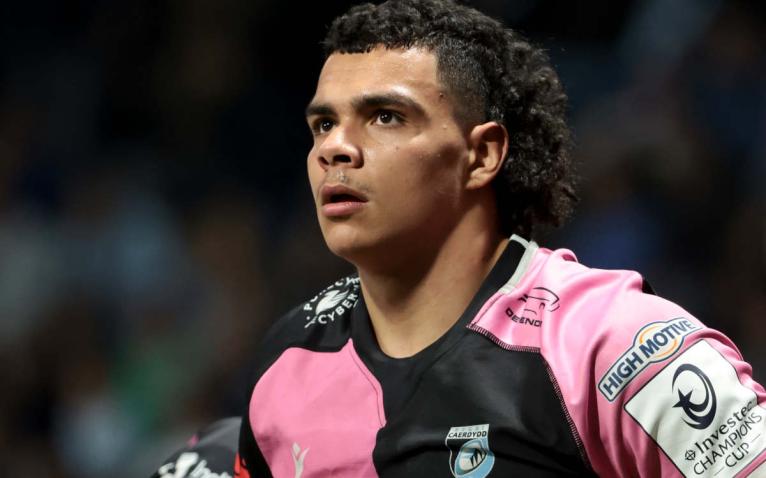
“For me, it’s logical for these boys to return to Wales, because what a lot of them don’t see at 16 is that if they are young and talented, they are going to get more opportunities at 19 in the senior squads here than they would in any of the English senior set-ups – provided they are good enough. That’s obvious if you look at the depth of some of the English squads.”
The well-documented financial issues in Welsh rugby mean those chances are coming increasingly frequently at the regions, too, with senior personnel trying their luck in the Gallagher Premiership or the Top 14 or even Japan, leaving behind places to fill. Players like Rhys Henry and Morgan Morse at the Ospreys and Cameron Winnett and Mackenzie Martin at Cardiff have benefited from opportunities, while increased exposure at senior level could prove the making of the likes of Eddie James, Tomi Lewis and Carwyn Tuipulotu at the Scarlets and Ben Carter and Will Reed at the Dragons.
“There is quite a bit of talent coming through in Wales,” says Rees.
“Looking at Cardiff, we are proud of being able to produce so many quality rugby players. Our head coach, Matt Sherratt, has a vision for talented local boys to flourish down here at the Arms Park, so we’re seeing opportunities for a really good academy group at regional and international level.
We have produced 15 international players from the Cardiff academy since the autumn of 2018. That works out at just over three a season in just over five years. We are second only to Leinster in terms of producing academy players for the senior group.
Gruff Rees
“We have produced 15 international players from the Cardiff academy since the autumn of 2018. That works out at just over three a season in just over five years. From a regional succession point of view, we are second only to Leinster in terms of producing academy players for the senior group. Some English clubs are down to 20 percent in terms of their academy graduates, while we are sitting at 70 percent or thereabouts. That’s partly due to ability and gaps in squads, but the majority of it has been factored in around our succession planning.”
Despite such successes, the evidence this term suggests that the Welsh regions are still up against it when trying to compete on equal terms with sides who boast power games. The Ospreys were reminded of that reality in Pretoria last weekend. The Bulls were fast and skilful behind the scrum, but, above all, they were bone-crushingly powerful up front. Edinburgh also packed a lot of bulk and muscle when they visited Cardiff. The Scarlets gave a decent account of themselves against the Sharks in Llanelli, with Ryan Elias – 45 tackles over his last two games – standing out once again, but the visitors’ pack were formidable. One carry from Eben Etzebeth was akin to a missile being launched at the home defence. It said much for the west Walians that their rearguard stayed up for the challenge throughout. Sadly for the regions and the Wales national team, genetics seem to work against ball-carrying giants coming through on stream in Welsh rugby. Those waiting for the next Scott Quinnell to emerge might just have to be patient.
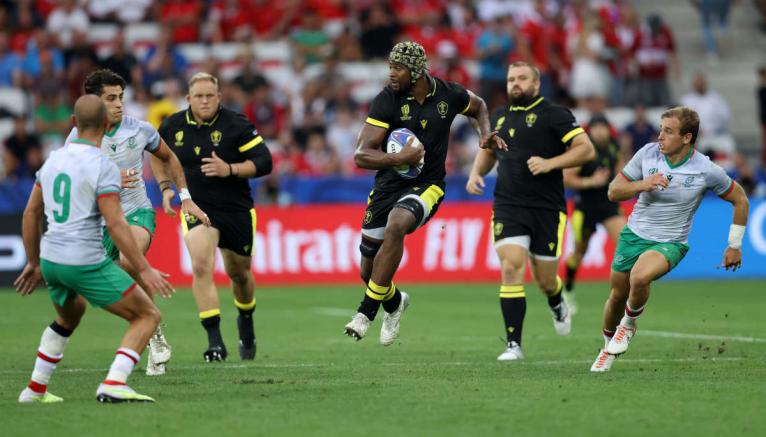
“There are not many of those athletes there,” admits Rees. “We talent ID heavily around the 15s and 16s structure and you can identify one or two per region, but it’s not many compared with other countries.
“We have to spot those boys and try to keep them within the system. We identified Mackenzie Martin at 15 and did our utmost to ensure he had every chance to come through. Every player is different, but because of what Mackenzie could be physically, we just had to be patient, work with him and show empathy with him. We gave him lifestyle support.
“I guess it’s about picking out the ones who are there and offering them the absolute maximum in terms of your staff and support to help get them through. We like to think we offer a service to every youngster involved in our set-up.
“Christ Tshiunza was with our under-18s and we did our utmost to try to keep him, going over and above financially, but Exeter University appealed to him. We lost out there, but he’s someone with a huge affinity for Cardiff and we’re hoping he’ll come back at some point.”
Feyi-Waboso came in when he was 17 and did a vertical jump test to measure lower-body power and he was the best in the building, ahead of all our internationals. It was extraordinary.
Gruff Rees
Losing Feyi-Waboso to English rugby still rankles, though, the youngster having headed over the border from Cardiff to pursue his academic studies and his dream of a career in medicine. “I said when asked about him a few years ago that he was a special talent,” says Rees.
“He came in when he was 17 and did a vertical jump test to measure lower-body power and he was the best in the building, ahead of all our internationals. It was extraordinary.
“Had he stayed with us, he’d be playing for Wales by now. He should be playing for Wales by now.
“That said, I speak to Immanuel a lot and understand his situation fully. I have a lot of pride in him and respect for him and his family and how they see the world. The route he’s taken has become the obvious one for him, unfortunately.”
Is Rees optimistic the trend of youngsters leaving Wales can be slowed down? “We are running programmes but get limited resource from outside to do that, but, to be fair to the Welsh Rugby Union, there’s a three- to six-year vision on developing players and if we can all buy in collectively, that could help.
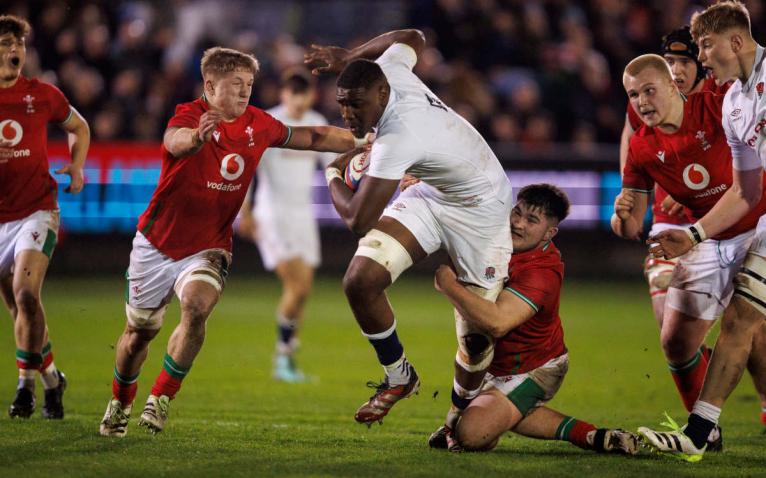
“Internally, I’m encouraged by what we’ve done and what we continue to do.”
Rees has done a superb job at Cardiff and continues to do so.
But the problem of holding on to next-generation talent remains a major one for all concerned in Wales.
Making the scene more attractive and a better option for youngsters isn’t just any challenge, particularly if clubs on the other side of Offa’s Dyke are insisting on clauses being written into contracts committing players to English age-grade sides if they are good enough.
With some justification, there are plenty who think it’s one of the Welsh game’s most important challenges.
All involved in grappling with it, dare not get it wrong.


Not sure what the Welsh are moaning about. They’ve had far more players off England, than England have had off Wales.
Guys like Josh Hathaway and Kane James will play for Wales in the end. And they’ll be fsr better players for having played in the Gallagher Premiership, than they ever would have been had they stayed mired in the shambles that is Welsh rugby.
Best thing the Welsh clubs could do is apply to join Gallagher prem surely be more exciting matches for there support than they have now.
We English want English rugby to be for only English clubs..so do one..we've got to kick Welsh teams out of English Football..you have your own FA and national team..so pay your own way for once..
Crowd sizes of the URC v the Premiership must be a big factor.